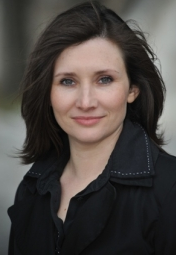Working with female clients seeking financial advice is not always easy. They are more likely to be demanding, ask a lot of questions and mull things over for quite some time before making a decision. The good news, however, is that once a woman has gained an advisor’s trust she is likely to be far more loyal than her male counterpart. In our survey of 2000 French people, we found that 33% of women always speak with a financial advisor before investing. This compares with 26% of French men.
Women are better educated than ever before
Women’s role in society – and even in their own families – is changing. Educational levels have increased significantly in the last 20 years to the point where, in many western countries, there are now more girls graduating from high school than boys. According to the OECD, in the UK, one in two young women (aged 25-34) now holds a university degree. This is an historic high for the UK and higher than tertiary attainment rates in many other developed countries. In France, the comparable level is 47%, in Germany 31% and in the US 48%. In our survey, we found that 35% of female respondents had at least a baccalaureate compared with 31% of men. More men had higher degrees, but not many more: 12% of women had a master’s degree compared to 16% of men.
Who manages the household finances?
Traditionally, men have taken control of the family finances, but in our survey, 52% of French women said they were the primary financial decision-maker and 42% said they shared this responsibility equally with their husband. Only 6% said they left financial decisions entirely to their spouse.
A Pew Research Center study found women were the breadwinners in 40% of households with kids in the US. In the UK, the Institute for Public Policy Research found that a third of working mothers are the main breadwinners, an increase of about 50% since 1996.
In the US, the average woman saves more than her male counterpart and a study by the Family Wealth Advisors Council (FWAC) found that, at some point in their lives, 95% of women will be their family’s primary financial decision-maker. Already, US women control 51.3% of the country’s personal wealth.
Women largely ignored by the financial services industry
Yet, despite the enormous potential women hold as clients for fund managers and financial advisors, many reports find that the industry is still failing them. Heather Ettinger, co-author of the FWAC study, says that even though women are under increasing pressure to manage their family’s finances, 35% said they had no financial advisor and that when they worked with a financial advisor they were not satisfied.
A study by Fidelity investments found that when couples interact with a financial advisor, men are 58% more likely than women to be the primary contact. There can be dire consequences for the advisor if he ignores or belittles the wife. According to an Allianz Life Insurance study in the US (Women, Money and Power, 2008), about 70% of widowed women change their financial advisor within a year of their spouse’s death.
Women make profitable clients
Yet women can often make great clients for financial advisors because:
- Their levels of wealth have significantly increased
- Women now play a greater role in their family’s finances
- They tend to live longer than men and are more likely to inherit money or get a divorce pay-out that they will likely need help with to manage
- They are generally more loyal and profitable
A white paper by LPL Financial (‘Strategies for attracting and retaining female clients’) found that women tended to be more loyal and more profitable as clients because they stayed for long periods with advisors they trust. They are also more likely to refer business.
More female advisors needed?
Some argue that perhaps one reason for women’s current dissatisfaction with their advisor is that advisors are usually men. A white paper by Aprédia in France found that women managed only around 18% of independent advisor offices. Figures from Patrimonia (an annual convention for financial advisors in France) found that in 2014, only 14% of participants were women. US Census Bureau statistics from 2013 show that only 31% of financial advisors in the US were women.
How can advisors attract and retain more women?
There is an increasing amount of information and advice for financial advisors to help them gain the loyalty and trust of their female clients.
Justine Trueman is an executive in the International Marketing team at BNP Paribas Investment Partners.

